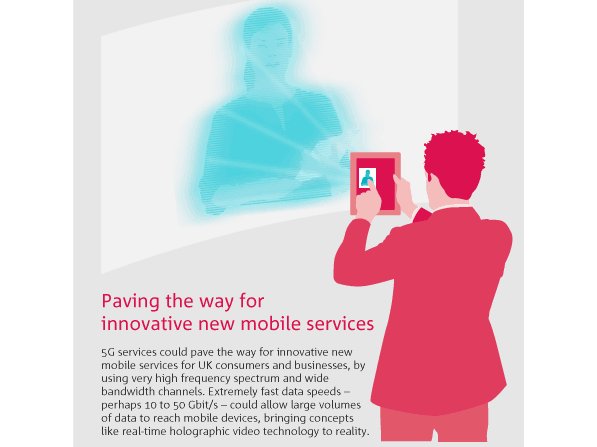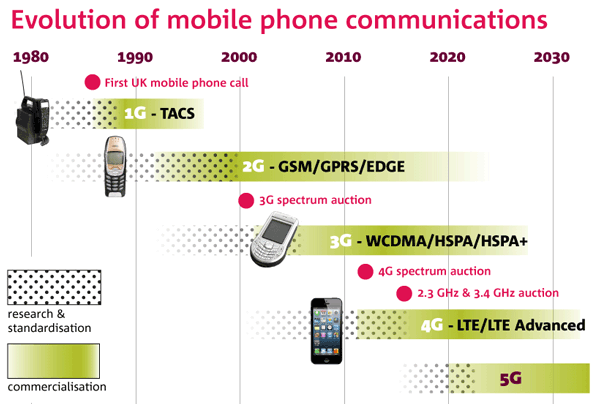Ofcom has started the groundwork needed to set sail for the 5G communications future. While most people in the UK only receive fleeting access to 4G services right now, dependent upon provider and location, the telecoms regular thinks it is important to be a leader in the next generation of wireless communications, reports the FT.
When 5G eventually arrives it is expected to be able to deliver data speeds in the range from 10 to 50Gbit/s. This would represent a 3,000 fold increase in speeds according to the FT. Ofcom says the average 4G customer in the UK today receives data at an average 15Mbit/s.
It is foreseen that the fantastic data speeds of 5G would usher in new uses for mobiles. For example Ofcom said we might have relatives "virtually attending family occasions," via real-time holographic video. In medicine we might get specialist surgeons working remotely using 3D medical imaging over 5G.

A big question concerning the rollout of 5G services concerns what parts of the finite spectrum available will it use to transmit data. To achieve the highest transfer speeds large blocks of frequencies are required, yet these are difficult to find at lower frequencies, says Ofcom. So it is looking closely at higher frequency bands like those above 6GHz, for example.
"We want to explore how high frequency spectrum could potentially offer significant capacity for extremely fast 5G mobile data," said Philip Marnick, Ofcom Spectrum Group Director. "This could pave the way for innovative new mobile services for UK consumers and businesses."
Currently Spectrum above 6GHz is mainly used for scientific research, satellite broadcasting and weather monitoring. The telecoms body has to work with industry to make the best use of available spectrum so is consulting from now until 27 February 2015 about how this high frequency spectrum can be used/shared.

It is thought that the first commercial 5G services will appear from around 2020. It is Ofcom's hope that the UK becomes a leader in laying the foundations of 5G and that 5G must represent a step beyond anything offered by 4G in speeds and in giving users the 'impression of infinite capacity'.













